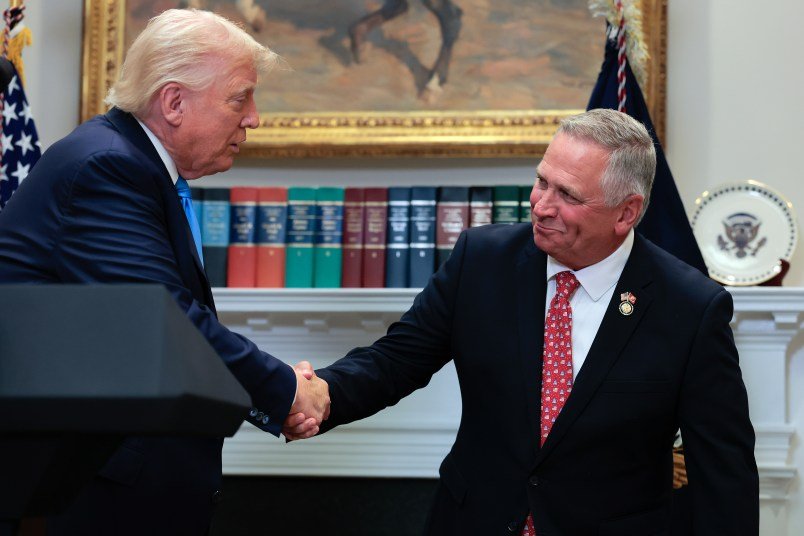Rep. Mike Bost (R-IL), who voted in 2020 to overturn the presidential election results, leads a case the Supreme Court heard Wednesday in which he and a couple of Republican electors challenge Illinois’ ballot-counting grace period.
The arguments centered on whether Bost had standing to bring the lawsuit, which challenges Illinois’ policy of counting ballots that are postmarked before, but arrive after, Election Day. If the Court decides he does, which the right-wing majority seemed positioned to do Wednesday, it’ll lower the bar for candidate challenges to election laws.
Along the way, the justices and attorneys were candid about the political dimensions of voting lawsuits — a sign of how extreme election challenges have become in the Trump era, that old-school Republican voting suppression can be acknowledged frankly.
“Loosening the rules for counting votes like this generally hurts Republican candidates and generally helps Democratic candidates,” Justice Samuel Alito said.
“Rules that Democrats don’t like tend to operate negatively directly on voters,” said Bost’s attorney and former Bush Solicitor General Paul Clement later in the arguments. “Republicans in a lot of these cases are challenging rules that allow you to keep counting ballots forever or keep the voting places open forever.”
Bost’s best arguments as to the injury he suffers from the grace period is that it might diminish his margin of victory (he’s in an R+5 seat) and that he may choose to spend additional money on poll watchers and other staff during that time.
“This is a complaint that sort of seems a little bit to be created in order to test the ‘I don’t have to show injury at all’ theory,” Justice Elena Kagan quipped.
She added that the whole case is “in search of a problem,” pointing to the fact that the Republican National Committee or the Democratic National Committee challenge nearly every voting regulation passed by a battleground state.
Still, the case has brought together odd bedfellows; the ACLU and League of Women Voters are supporting Bost’s case.
“While the League and its state and local affiliates have fought to advance state laws like the one challenged here, and thus vehemently oppose Petitioners’ position on the merits, they often find themselves in the same position that Representative Bost does here: injured because a challenged election rule materially interferes with their pre-existing core activities and drains resources that would otherwise be deployed elsewhere,” the groups said in an amicus brief.
Those of an election denier bent like Bost see value in a lowered bar to challenge elections too; Judicial Watch, the right-wing group that frequently deals in voter fraud conspiracy theories, joined Bost’s case as it reached the Supreme Court.
Justice Ketanji Brown Jackson gave voice to the concern that this case could further erode election integrity, just before midterms President Trump is near-certain to challenge if they go Democrats’ way.
“I worry a little bit practically if we accept that kind of thought, the idea that a candidate is harmed if their margin of error changes even if doesn’t make a difference in the election, that we’re actually opening up avenues for a lot of post election challenges that we wouldn’t otherwise have,” Jackson said. “People who’ve lost the election but they want their margin of defeat to be different or they think it might have been, so now we have litigation.”


